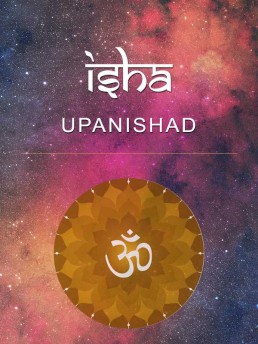OM TAT SAT
We shall now briefly comment upon the mantras, the persons competent to study which, the subject matter of which, the relevancy of which (samhandha) and the fruits of which, have been thus declared.
Isha Upanishad Home
Isha – Sri Shankara’s Introduction
Isha – Invocation
Isha – 1-īśāvāsyamidaṃ sarvaṃ
Isha – 2-kurvanneveha karmāṇi
Isha – 3-asuryā nāma te lokā
Isha – 4-anejadekaṃ manaso
Isha – 5-tadejati tannaijati
Isha – 6-yastu sarvāṇi
Isha – 7-yasminsarvāṇi bhūtāny
Isha – 8-sa paryagāc chukram
Isha – 9-andhantamaḥ praviśanti
Isha – 10-anyad evāhur vidyayā
Isha – 11-vidyāṁ cāvidyāṁ ca
Isha – 12-andhaṁ tamaḥ praviśanti
Isha – 13-anyad evahūḥ
Isha – 14-sambhūtiṁ ca vināśaṁ
Isha – 15-hiraṇmayena pātreṇa
Isha – 16-pūṣann ekarṣe yama
Isha – 17-vāyur anilam amṛtam
Isha – 18-agne naya supathā

Ishavasya Upanishad – Sri Shankara’s Introduction – Isha – Sri Shankara’s Introduction – In Sanskrit with English Transliteration, Meaning and Commentary by Adi Shankaracharya (Sankara Bhashya) and Swami Sivananda – Ishavasya – Intro
